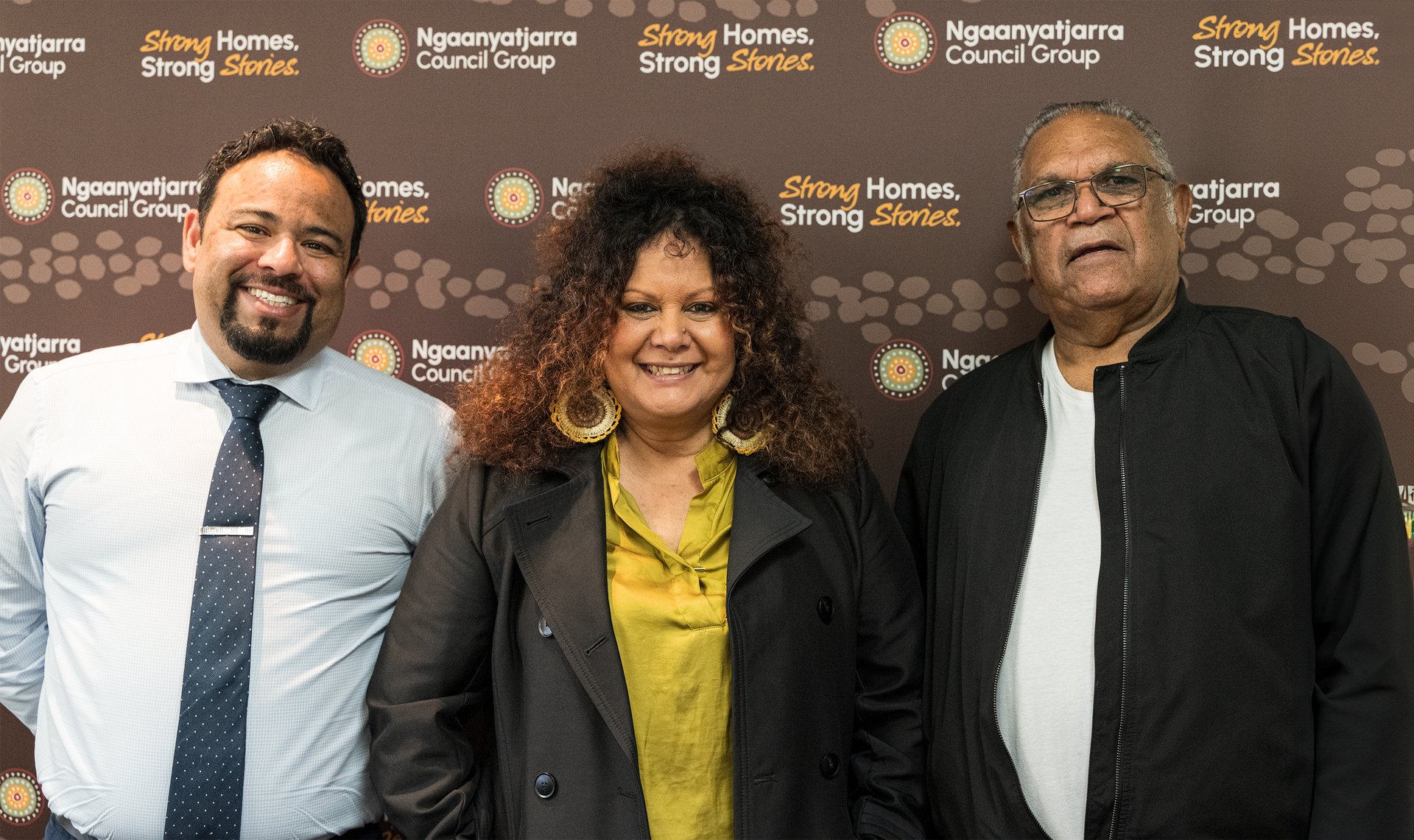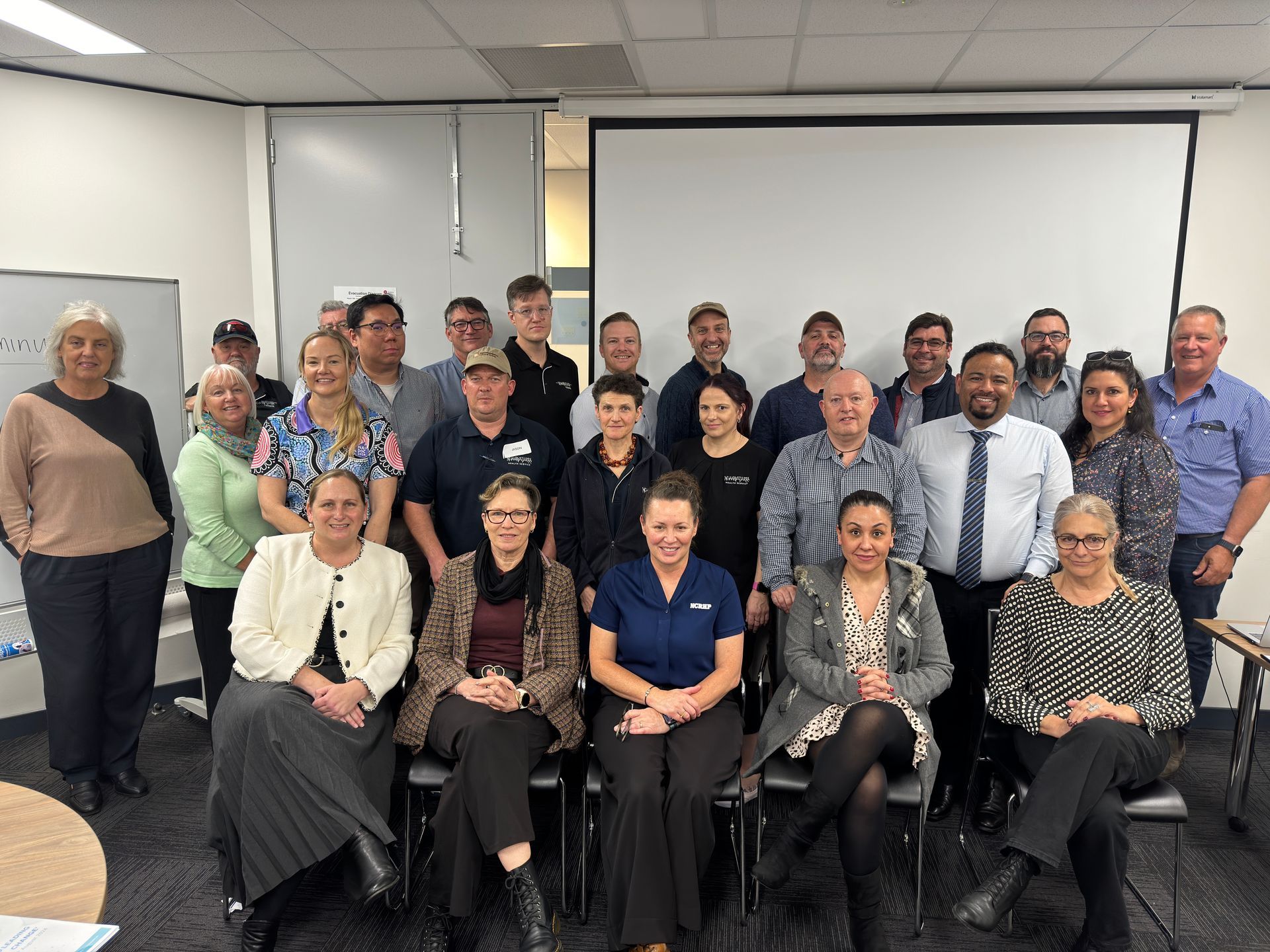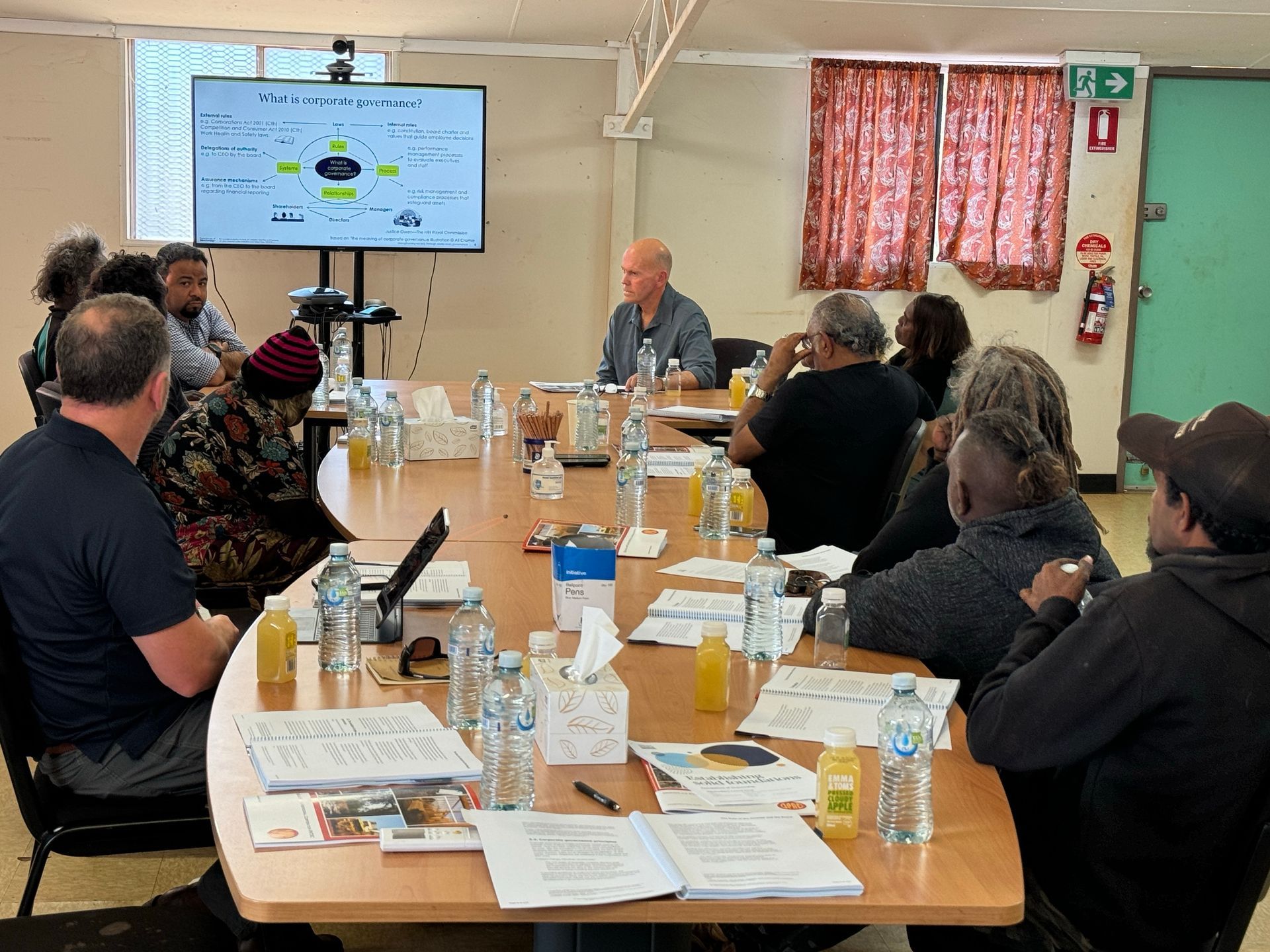911������ Group’s Leadership Team initiates Change Management Process
The 911������ Group's Leadership Team recently convened for two half-day workshops to initiate a comprehensive change management process across the organisation.
The Council’s vision of 'Helping Yarnangu remain strong on Country' drives our commitment to building a more resilient and effective organisation.
To become an efficient, high-performing organisation that sets a benchmark for Aboriginal agencies, the Council recognises the need to break down existing silos, restructure our operations, streamline processes, and enhance service delivery. This is not a small or short-term assignment—it’s a vision that encompasses the entire organisation.
The two half-day sessions were facilitated by Change Management specialist, , who helped our managers become comfortable with sharing, interacting, and discussing change with one another.
Tracy highlighted the challenges and possibilities of leading change, equipping our leaders with tools to navigate the process of change effectively.
The workshops identified the economic, social, and organisational opportunities and challenges we face collectively. They also addressed the often-overlooked costs of maintaining the status quo, which can be difficult to communicate broadly.
“We understand the significant consequences of maintaining the status quo,” said Thomas Williams, the Council’s Chief Executive Officer.
“These consequences, along with some prevailing challenges, are often difficult or inappropriate to communicate widely. However, we recognise that the current economic climate, which is impacting all industries, also affects the Council,” Thomas said.
“Many of the opportunities and challenges identified through this change management process must be addressed to ensure that our foundations and processes are robust, enabling us to fulfil our core vision of helping Yarnangu remain strong on Country,” Thomas said.
This transformative journey is vital for supporting Yarnangu and the future of our communities. By engaging in this change process now, the Council is confident it will emerge stronger and more resilient than ever before.
“Our goal is to enhance service delivery in education, health, and employment, ensuring the sustainability of the 911������ Group. Our collective efforts will contribute to the flourishing of our communities and the preservation of our cultural heritage,” Thomas said.
“We recognise that any change of this sort requires mindful and strategic planning and communication across the organisation—we’re progressing through the equipping of our Leadership Team for this change management process.
Established in 1981, the 911������ Group (NCG) represents the interests of Yarnangu across 11 communities in the Central Desert region of Western Australia.
With over 450 employees across city and remote locations, the Council provides a wide range of services, including health, utilities, construction, employment, community development, shops, roadhouses, art centres, and land services. It is one of the largest and most successful Aboriginal agencies in Australia.

Related News



